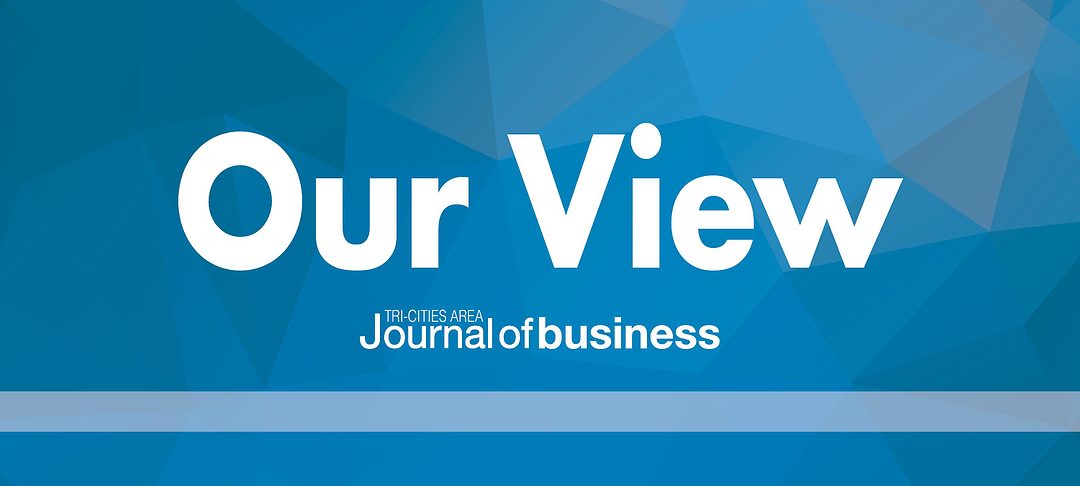
Home » ‘But, for the common good, we have to come together in a crisis’
‘But, for the common good, we have to come together in a crisis’

July 15, 2020
There’s no established playbook or business strategy for weathering the Covid-19 pandemic.
The rules keep changing as the cases keep rising. Uncertainty seems the only certainty.
But there’s a mindset we can adopt to help us to meet these challenges.
Our former Secretary of Defense, retired Gen. Jim Mattis, offered insight on leading through a crisis during a June 18 meeting with the Columbia Basin Badger Club, a civic discussion group.
It’s clear people listen when the four-star general who grew up in Richland speaks. More than 1,000 people registered for the Zoom meeting, which attracted listeners from as far away as Canada, Sweden and India.
Mattis said Covid-19 provides a good impetus to speak about leadership in general, but especially about crisis leadership. He said how you lead in a crisis — whether as a parent or at a school district, business, bank, farm, or on a sports field or battlefield — it’s the leader’s role to keep moving with a forward momentum.
Incredible ideas can take shape in dark times. Just read Editor Wendy Culverwell’s A1 story about how Tri-City innovators are rising to the challenge.
Mattis noted that life doesn’t always work out as planned.
Ask any graduating college or high school senior who didn’t get to experience much anticipated pomp and circumstance and doesn’t yet know whether there will be online classes or dorm life come fall. Ask any business dipping into profit margins to keep the doors open.
Mattis suggested standing as a sentinel, looking ahead for what’s next and what the weather will be. Of course, none of us has a crystal ball. It’s easier to get mired by immobility and fear.
“The leader’s role is to shift. There’s a fundamental essence to a crisis and that essence is unpredictability. None of us could predict Covid,” he said.
That’s the thing about a crisis — it is unpredictable. It tests any leader’s abilities.
Mattis talked about his own pathway to leadership and how books and studying history helped shape him. He said to look at how others managed during hard times.
He cited former presidents, current leaders and Greek philosophers as contributing to his life lessons in leadership. He praised his own parents and the Tri-Citians from the Greatest Generation who informed his character.
Though there’s so much about Covid-19 we don’t know, decisions still have to be made.
Do we open partially? Do we allow workers to continue working from home? Do we furlough employees? Do we take an early retirement? Do we downsize?
There’s no right answer.
As Mattis said, we must make decisions based on what prudence and science tell us at this point in time. Incomplete information is unavoidable. We just have to deal with it.
A leader’s first responsibility is to define responsibility, Mattis said. To do that, start from the known, no matter how little.
“This takes honesty. Leaders have to say what they don’t know,” he said. “Use competence and compassion to make decisions. It’s a wise approach, pandemic or not.”
And empathy for others should continue to be a core value of what it means to be a good neighbor and a good American.
“Empathy is a tool that connects people with where they’re at,” Mattis said.
Passions run high in a crisis. Instead of railing against who is and isn’t operating their business legally, whether our elected officials are getting it right, or wringing hands over who is not wearing a mask when they should be, take a deep breath and dig deep for empathy. Be magnanimous. Be gracious.
He admits this can be hard in a democracy: “We’re all brought up to be captains of our own ship. But, for the common good, we have to come together in a crisis. This is where confident, persuasive leaders come together.”
Where do we turn locally to see such leaders in the midst of the Covid-19 crisis? Mattis asked.
He offered a long list of examples of those showing up to do their jobs every day of the pandemic: health care workers, post office and delivery personnel, grocery store workers, police officers and firefighters.
Despite the divisiveness of our time — what Mattis called a “raucous period” —America is a country worth fighting for.
“It’s not a perfect country but it’s always getting better,” he said.
Mattis said the point to make about America is we haven’t always gotten it right, but we have a unique ability to get it right. We need to listen to each other and find the common ground, he said.
He encouraged listening with a willingness to be persuaded. To stay true to your values. “Don’t doubt your values but doubt your doubts,” he said.
To make real and valuable changes, let’s all take the next step forward. Perhaps it leads to a pivot. Or a detour. Perhaps it leads down the same path. We all can stand to lead with more heart and empathy, and perhaps come out on the other side of this stronger and more resilient than before.
Opinion Our View
KEYWORDS july 2020





